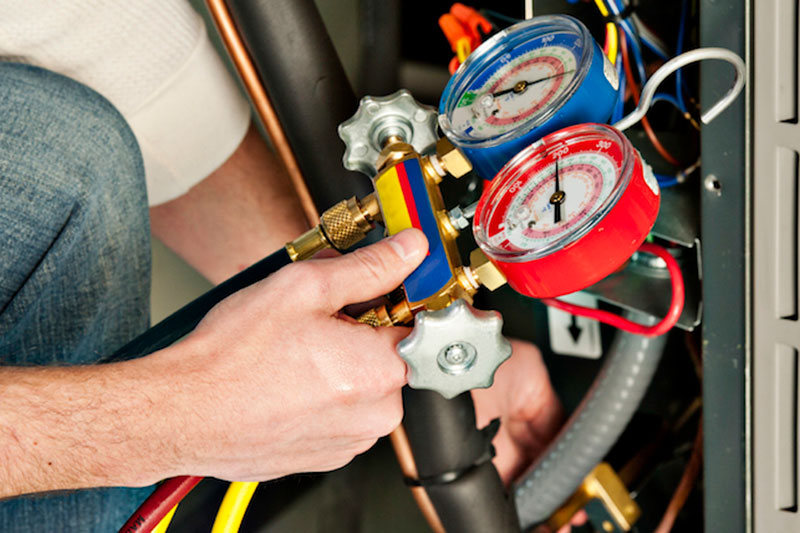
You might not think much about how your air conditioner operates, but it relies on refrigerant to keep your residence fresh. This refrigerant is bound by environmental rules, as it contains chemicals.
Subject to when your air conditioner was installed, it may require R-22, R-410A or R-32 refrigerant. We’ll review the differences and which air conditioner refrigerants are being phased out in Alliance, as well as how these phaseouts have on influence on you.
What’s R-22 and Why Is It Phased Out?
If your air conditioner was installed before 2010, it possibly contains Freon®. You can learn if your air conditioner contains it by calling us at 308-762-1613. You can also inspect the name plate on your air conditioner condenser, which is found outside your home. This sticker will contain info on what type of refrigerant your AC uses.
Freon, which is also called R-22, has chlorine. Scientists consider R-22 to be damaging to the earth’s ozone layer and one that leads to global warming. The Environmental Protection Agency, which manages refrigerants in the United States, barred its creation and import in January 2020.
Should I Replace My R-22 Air Conditioner?
It varies. If your air conditioning is running properly, you can continue to use it. With regular air conditioner maintenance, you can expect your AC to operate around 15–20 years. However, the Department of Energy notes that removing a 10-year-old air conditioner could save you 20–40% on annual cooling bills!
If you don’t get a new air conditioner, it may lead to difficulties if you require air conditioning repair in the future, specifically for refrigerant. Repairs can be more expensive, as only small quantities of recycled and reclaimed R-22 is accessible.
With the discontinuation of R-22, many new air conditioners now use Puron®. Also referred to as R-410A, this refrigerant was created to keep the ozone layer strong. As it calls for a varying pressure level, it doesn’t work with air conditioners that rely on R-22 for cooling.
However, Puron still has the potential to lead to global warming. Because of that, it could also sometime be phased out. Although it hasn’t been mandated yet for residential air conditioners, it’s anticipated sometime this decade.
What Refrigerant Will Take the Place of R-410A?
In preparation of the discontinuation, some companies have initiated using R-32 in new air conditioners. This refrigerant rates low for global warming likelihood—about one-third less than R-410A. And it also decreases energy consumption by approximately 10%, according to the Intergovernmental Panel on Climate Change’s Fourth Assessment Report. That’s savings that might be passed on to you through your utility expenses.
Jack's Heating, Cooling, Stoves & Fireplaces Can Assist with All Your Air Conditioning Needs
In short, the alterations to air conditioner refrigerant probably won’t affect you a whole lot until you have to have repairs. But as we discussed beforehand, refrigerant repairs might be more costly because of the reduced amounts available.
Aside from that, your air conditioner often stops working at the worst time, typically on the muggiest day when we’re getting a lot of other appointments for AC repair.
If your air conditioner uses a phased out refrigerant or is aging, we advise upgrading to a modern, energy-efficient air conditioner. This ensures a trouble-free summer and might even lower your utility expenses, especially if you choose an ENERGY STAR®-rated system. Plus, Jack's Heating, Cooling, Stoves & Fireplaces offers many financing programs to make your new air conditioner even more affordable. Contact us at 308-762-1613 to begin right away with a free estimate.
